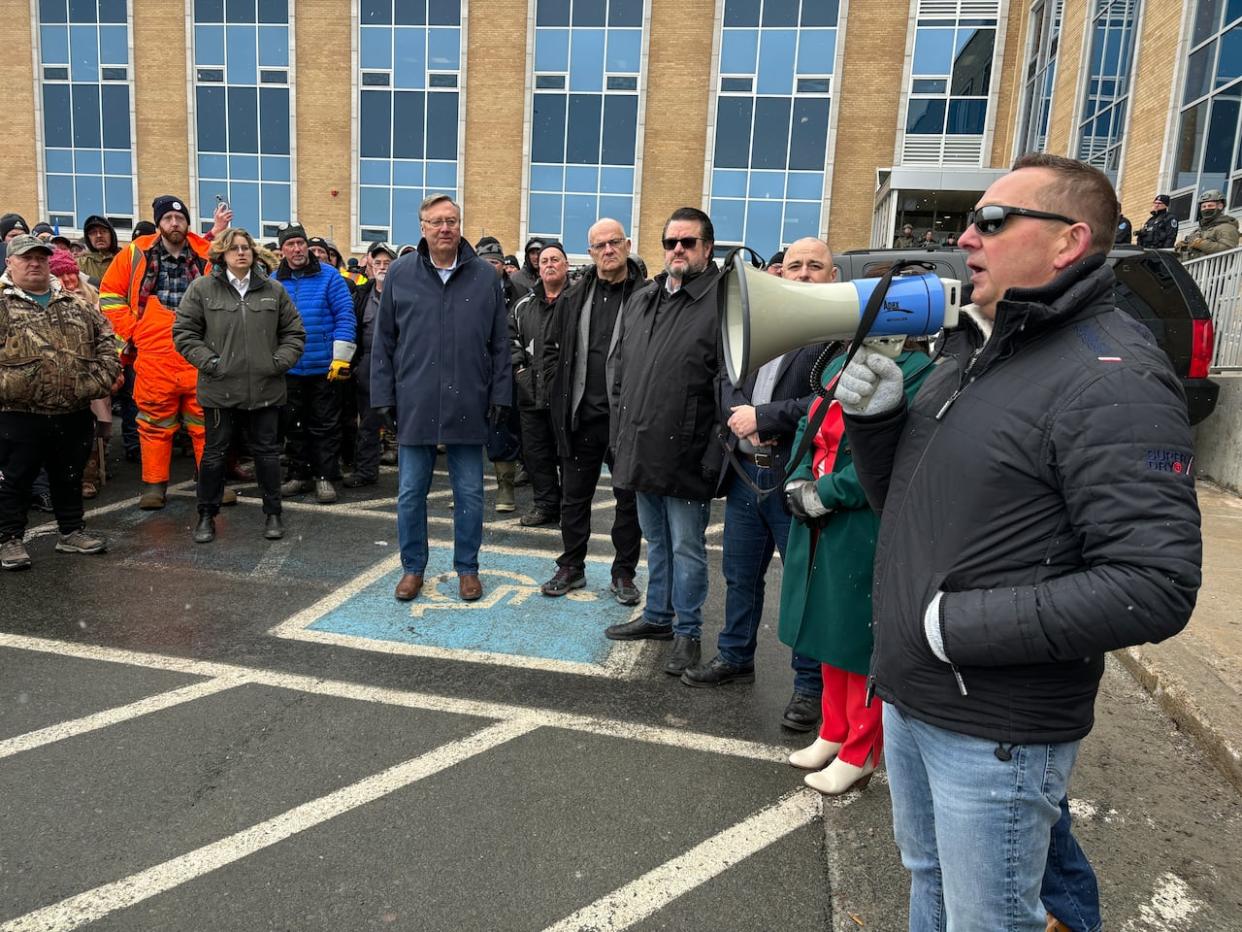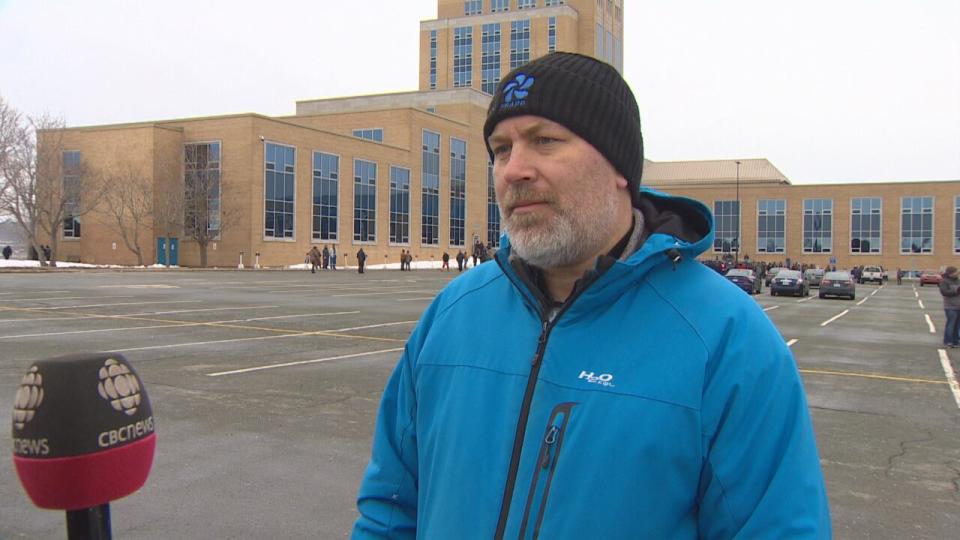Snow crab price talks have broken off, FFAW says

As fishermen and supporters rally outside Newfoundland and Labrador's Confederation Building for a variety of demands, one tangential but crucial process has fallen apart.
According to a Thursday evening press release from the Fish, Food & Allied Workers union, negotiations for a new market-based pricing formula for snow crab have stalled.
Protest leader John Efford Jr. grabbed a megaphone Thursday to told the crowd that negotiations for a new crab price-setting formula had broken off ahead of the upcoming season.
"There's no agreement to be made," he told the cheering crowd. "And how can you make an agreement when you're trying to make an agreement with a colluded cartel that has the support of the government?"
While the price-setting process has been controversial in the past, it hasn't been at the core of the protests outside the province's legislature this week.
The Fish, Food & Allied Workers union and the Association of Seafood Processors have been working with the provincial government to establish a new formula to determine the price. The sides could not come to an agreement last season, leading to a process in which both sides put in their best offers and a price-setting panel had to chose the association's $2.20 per pound, prompting fish harvesters to tie up their boats for six weeks without fishing.
In November, the price-setting panel released a report that called the current price-setting process "flawed" and "impossible," and recommended changes to avoid another tie-up. Those talks have been aimed at developing a formula to establish the price before crab season begins in April.
The FFAW release says parties involved will have until 4 p.m. NT on Wednesday to finalize their price submission to the price-setting panel.
While ongoing protests have had much more to do with changes to fishery regulations, price-setting negotiations seem likely to become a key issue for protesters.
Protesters have accused processors of controlling the industry like a "cartel" and say the government sides with them too often.
Changes protesters want would hurt processors: ASP
In a press release issued Thursday afternoon, the processors' association accused harvesters and the FFAW of spreading "propaganda and misinformation" and said the changes they're demanding would hurt the fishing industry.
"Recent behaviour defined by threats, intimidation and harassment cannot be tolerated," says the statement. "Placing blame on producers is unfair and should not be accepted. Long-term sustainable solutions that benefit all must be adopted."
The release, which didn't confirm whether talks had broken off, also said that by siding with fishermen in the protests, the FFAW is threatening the livelihoods of plant workers, who are also represented by the union.
"Additional capacity decreases employment for plant workers. It slices the same size pie into additional pieces and the result is each worker gets less of the pie."

Fish, Food & Allied Workers secretary-treasurer Jason Spingle says fishermen are united in wanting change in the industry. (Mark Quinn/CBC)
Jason Spingle, secretary-treasurer of the FFAW, told CBC News he doesn't believe that harvesters' wish to sell their product outside Newfoundland and Labrador will hurt plant workers in the province.
"Certainly not all of the product is going to go out of the province," he said. "With the amount of product that we have and the amount of workers that are there, I don't think that we're going to see any loss, overall loss to our plant workers."
Spingle said harvesters across the island are unified on the common goal of change.
"There's no splinter group. It's the FFAW, it's fish harvesters, all inshore fish harvesters throughout the province," Spingle said.
"What we're seeing right now as harvesters [is] not being able to sell their product. Or if they are, the duration between trips, the amount they're allowed to bring in is shrinking. And certainly the lack of respect that was there to a large degree is diminishing."
The FFAW's release, issued shortly after 5 p.m., disputes the ASP's suggestion that harvesters' demands, if granted, would harm plant workers.
"Longer seasons and more work is better for everyone involved in the inshore fishery.… Unfortunately, processing companies tell their workers that increasing market access for harvesters will mean losing their jobs. This is a lie, and a harmful one that drives our membership apart," the statement said.
"More competition is better for our fishery. It is better for fish harvesters, better for plant workers, and better for the long-term sustainability of coastal communities. Because one cannot survive without the other."
The statement also said demonstrations will continue Friday. CBC News has asked FFAW president Greg Pretty for an interview.
Download our free CBC News app to sign up for push alerts for CBC Newfoundland and Labrador. Click here to visit our landing page.


